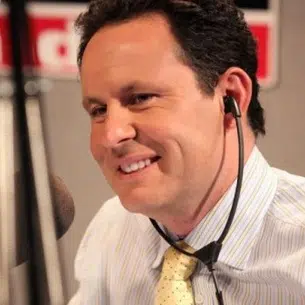TERRE HAUTE, Ind. (WTWO/WAWV)– At the beginning of 2021, Elaine Edwards didn’t plan on taking the COVID-19 vaccine due to her own doubts about it’s safety.
She said a recent phone call with her 90-year-old brother changed her mind.
“He got it and he said he felt okay, and it’s been about two weeks now. I told him I had been thinking about it and he said go get it,” she said.
But despite being disproportionately affected by the virus, there are still some African Americans who aren’t ready to get vaccinated.
Pastor Terry Clark said disparities in healthcare contribute to some of his apprehension.
“I’m in the wait and see category. I’m not saying I’m opposed to a vaccine. I just don’t see anything as the savior of people,” Clark explained. “If we have more health complications because of it, a lot of us struggle because we don’t have access to health care anyway. So we just don’t want this to be another roadblock for a number of us.”
Pastor Clark said the 1932 Tuskegee study, where hundreds of black men were examined for untreated syphilis, also plays a major role.
“The perception is that we’re going to test this and try it out on black people first, and while that is justifiable being that a number of black people have been affected by coronavirus. Due to those historical instances, that causes a number of people to throw up a roadblock and go ‘Wait! Not so fast.’”
The government study in Tuskegee, Alabama began in 1932 and consisted of 600 black men. Most of the men had syphilis, but were told they were going to be treated for bad blood.
After a treatment was found, the men never received it. The study was set to last 6 months, and instead lasted for 40 years, ending in 1972
“As far as history is concerned, we all should know about an era when black and brown people had been experimented on,” Sylvester Edwards, president of the Terre Haute chapter of the NAACP said. “The problem with that is the doctors and nurses knew and the federal goverment sanctioned these things to happen.”
Edwards said he plans to consult with other minority doctors before getting vaccinated.
“I want to hear what they have to say. From that I will make my determination. Not that I would make a decision for anybody else. I can only make them for myself. But I won’t say anything negative,” he noted.
As for Pastor Clark, he said he needs to see more African Americans get vaccinated.
“I’d like to see more results from different people. Particularly more people in our community, who are saying I’ve taken it. No problem. No harm, no foul. It’s good. Take it,” he finished.
According the Center for Disease Control, African Americans are 1.4x more likely to contract COVID-19 compared to White and non-Hispanic people. But they’re nearly 3x more likely to die from the disease.
Dr. Curtis Wright, CEO for Eskenazi Medical Group in Indianapolis, said African Americans’ mistrust is rooted in racism and historical instances like the Tuskegee study.
“That kind of history is a part of the black experience. I think that mistrust has been earned,” Dr. Wright noted. “But we would like to regain the trust of our patients and that again happens with a longitudinal relationship with a physician.”
But he said it’s his hope that black patients will step out on faith.
“There is an opportunity to address the fears and regain trust. But people need to go into this with their eyes wide open that this virus is killing people and it will continue to kill people until we get it under control. This is our best opportunity,” Dr. Wright said.
The Biden administration is working to combat vaccine mistrust in minority communities like the African American community.
The White House’s COVID-19 taskforce plans to focus on racial inequality in healthcare.
Susan Rice, Deputy Policy Advisor, said this on Monday when asked what the administration is doing specifically in communities of color to convince them to get the vaccine. Rice said she had two important points:
“One: We have established within our COVID taskforce an effort on equity–and that includes, of course, racial equity–that will focus on health disparities but also on the reality that there are Americans—particularly Americans of Color—who, for very valid historical reason, are skeptical and reluctant,” she said.
Rice also added that the administration plans to provide credible information about the vaccine and it’s safety to those communities where skepticism is prevalent.
“We are reaching out directly through targeted campaigns to get to those very communities where skepticism is highest. That’s vitally important because as communities of color are suffering disproportionately, they may have less access to information about the vaccine and the ability to easily go online in some cases and get an appointment. We have to take those additional steps to ensure they are aware of the availability to make an appointment and that they know it’s safe.”




